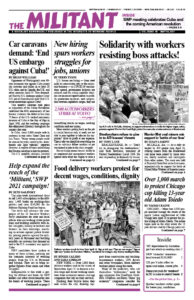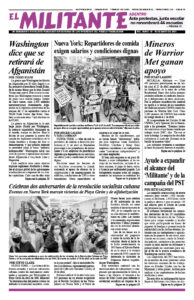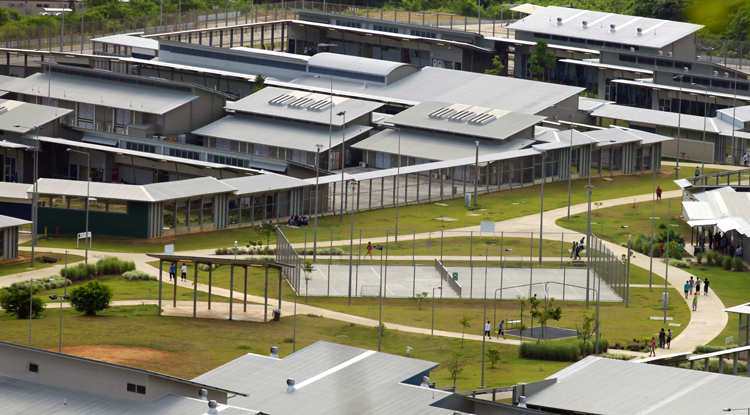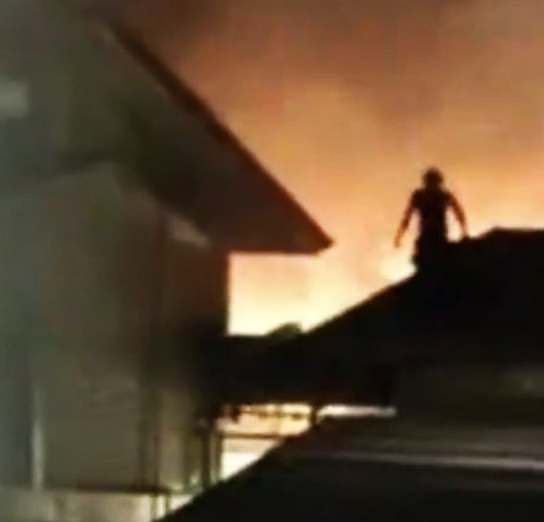SYDNEY — Defending Canberra’s policy of stepping up deportations of “criminals,” Minister of Home Affairs Peter Dutton called it “taking the trash out” to “keep Australia safe.”
His comments coincided with a Channel 9 TV report titled, “Con Air: The secret flights sending foreign criminals packing.” Their reporter was allowed to film and curse out deportees as they boarded a plane bound for New Zealand. “Our country doesn’t want you,” he told one woman, adding, “How does it feel to be kicked out of Australia?”
Deportations from Australia have been rising since changes to the migration law in 2014 gave the government arbitrary powers to expel any noncitizen deemed to be “not of good character.” This includes mandatory cancellation of visas of anyone sentenced to a total of a year or more of imprisonment, regardless of when it occurred.
Dutton boasted that under the new rules the visas of about 6,300 “noncitizen criminals” have been canceled. While he and the media paint those deported as dangerous criminals, most have served prison terms for minor offenses. Some have no convictions at all.
More than a third of the deportations have been to New Zealand — 2,375 people between Jan. 1, 2015, and March 12, 2021. More than half of these are of Maori or Pacific Island descent.
Those caught up in this wave of expulsions call themselves “501 deportees,” after section 501 of the Australian Migration Act, which lists the “character traits” Canberra now uses to expel people. They can be held in immigration prisons in Australia for up to two years waiting for their cases to be decided.
Last year the federal government reopened the infamous detention center on Christmas Island, a remote Australian territory in the Indian Ocean, to incarcerate section 501 detainees. In January protests broke out over conditions, especially lack of contact with families.
“Government attacks on the rights of immigrants target the working class as a whole, deepening divisions among workers and weakening our ability to organize,” Robert Aiken, Communist League candidate for Hurstville Ward, Georges River Council, said. “We reject the reactionary rhetoric of the bosses’ representatives in both countries who label 501 deportees as ‘trash.’ This reflects their class view of all working people.”
Human beings, not ‘trash’
“They are human beings. They’re not trash. They are children that have parents. They have families,” Moana Taverio, told the Militant. Her son, Tangaru Noere Turia, was killed by police in Auckland, New Zealand, Feb. 27. He was deported from Australia in 2017 despite having lived here with his family since he was just six months old. His three young children remain in Sydney.
Taverio said her son spent a year in Sydney’s Villawood immigration prison as the family fought for him to be allowed to stay in Australia.
“I want to know what happened to him” in New Zealand, Taverio said, adding she didn’t believe the police’s account of the shooting. Her son had mental health problems and had “struggled to fit into New Zealand the whole time he was there.” As a 501 deportee he was watched by police since he arrived there.
“I do blame the Australian government, if they hadn’t deported him this wouldn’t have happened,” she said.
For four decades the Australian rulers have imposed growing restrictions on the rights of New Zealanders moving to Australia. Since 2001, they no longer have an automatic right to permanent residency, curtailing access to unemployment payments and other benefits.
There are about 650,000 New Zealand-born Australian residents. Many have lived in the country for much of their lives, along with their families.



